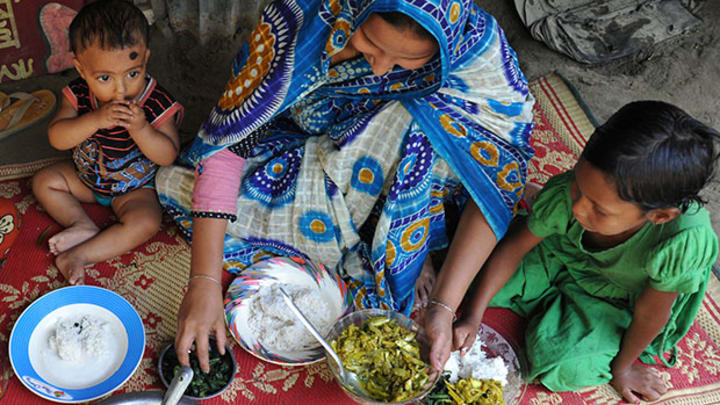
Ending hunger is not an impossible task. There are three critical elements that we know get results: starting with women, mobilizing everyone and fostering effective partnerships with local government.
1. Start with women. Empowering women and girls is critical to ending hunger, extreme poverty and malnutrition around the world. When women have equal access to education and participate fully in decision-making, they are the key driving force against hunger and poverty. Women with equal rights are better educated, healthier and have greater access to land, jobs and financial resources. Their increased earning power in turn raises household incomes.
By enhancing women’s control over decision-making in the household, gender equality also translates into better prospects and greater well-being of children, reducing poverty of future generations. Indeed, if women farmers had the same access to resources as men, the number of hungry in the world could be reduced by up to 150 million. And data show that countries that empower women tend to see lower rates of stunting, which is the primary measure of chronic undernutrition.
2. Mobilize everyone. Mobilizing communities to be the agents of their own change is central to ending hunger. Hungry people are not the problem — they are the solution. People living in conditions of hunger and poverty are best placed to come up with answers to the challenges they face. They have both the talent and the will to take charge of their own lives. They know their own needs and are aware of the resources their communities have and those they lack.
That’s why mobilizing the “people power” that gives communities the clout and voice to demand the resources that are rightfully theirs ignites communities to end their own hunger.
The Hunger Project focuses on training members of communities to take action in the areas of health, food security, education, family income and local government and these people, in turn, are mobilizing millions of others to do the same.
Mobilizing communities here at home is also critical. We need to spread awareness and call for action and change. That’s why campaigns like Live Below the Line are so important. They generate awareness, raise funds, engage people in a unique way and call for action.
3. Foster effective partnerships with local government. Working with, not alongside of, government is central to long-term, sustainable development and ending hunger. Working with existing local democratic institutions to strengthen capacity and make the most of the resources that are already available makes for lasting change. Local government is closest to the people and has the mission of working with people to meet their basic needs. Working in partnership with local government bodies that ensure they are effective, include the leadership of women, are directly accountable to local people, and provide access to resources and information are what gets results.
With these strategies, we can break through age-old conditions such as corruption, conflict, racism and the subjugation of women. The result is social transformation: a fundamental shift in the way society is organized.
The solution to hunger is not about handouts and a top-down approach, but a bottom-up approach that starts with women, works with local government and mobilizes communities to take self-reliant actions.
From April 27 to May 1, Åsa Skogström Feldt will join thousands around the globe who commit to eat and drink on $1.50 per day to raise awareness and funds toward the fight against extreme poverty. Sign up for The Hunger Project’s Live Below the Line challenge.




